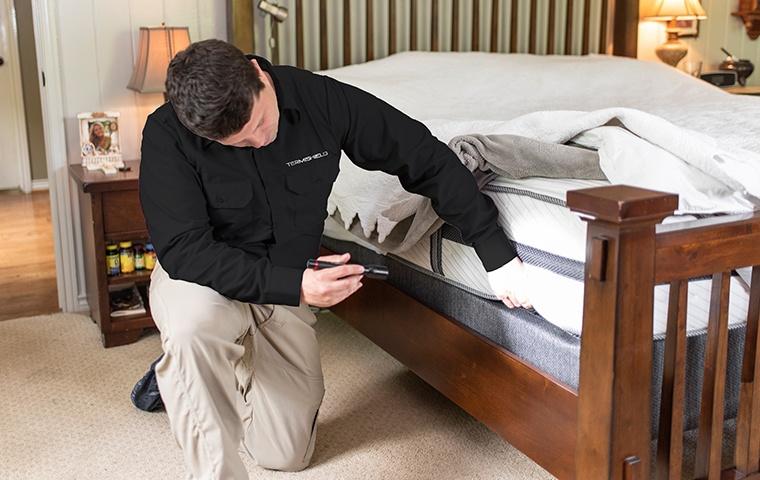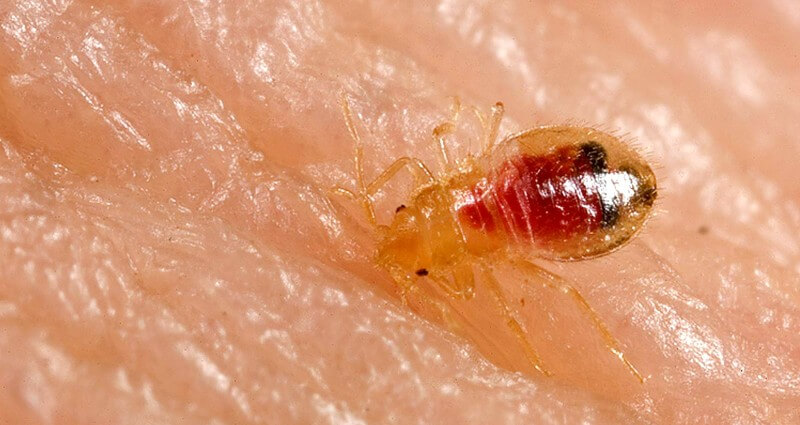Best Kings Bug Control Cincinnati: Top-Rated Pest Control Experts
Best Kings Bug Control Cincinnati: Top-Rated Pest Control Experts
Blog Article
Types of Insect Control: Which Technique Is Right for Your Invasion?
When faced with a bug invasion, the choice of an appropriate technique for insect control is important in successfully handling the situation. From chemical treatments to organic solutions, there exists a variety of strategies that can be employed to address various types of bugs. Each method includes its very own set of factors to consider and advantages, making the decision-making procedure a nuanced one. Recognizing the subtleties of each method and evaluating their compatibility with the certain insect invasion available is essential for achieving long-lasting success in pest management. By discovering the various kinds of insect control techniques readily available, individuals can make enlightened decisions customized to their one-of-a-kind scenarios, making certain an extra sustainable and efficient outcome in parasite eradication.
Chemical Bug Control
Chemical parasite control involves using synthetic or normally obtained chemicals to take care of and remove pest populations effectively. This technique is typically made use of in farming, forestry, and domestic setups to deal with a vast array of insects, including insects, rodents, and weeds. The use of chemical pesticides can provide quick and targeted options to pest invasions, making it a popular selection for many individuals and businesses.
One of the vital benefits of chemical insect control is its capacity to quickly get rid of parasites, reducing the threat of damages to plants, residential or commercial property, and human wellness. By utilizing specific chemicals that target specific parasites, this technique can successfully manage problems while reducing injury to helpful organisms and the setting when applied appropriately.
Nevertheless, the use of chemical insect control additionally elevates problems regarding possible unfavorable results on non-target types, water sources, and human health and wellness. It is vital to adhere to security standards, use chemicals sensibly, and take into consideration alternative parasite control methods to reduce these risks and make sure lasting insect management practices.
Organic Parasite Control
Organic bug control, also understood as biocontrol, makes use of living organisms to take care of and lower parasite populaces naturally. By making use of the pest's natural killers or pathogens, organic insect control supplies a lasting and environmentally friendly solution to pest management.

Mechanical Parasite Control
Utilizing hand-operated and physical techniques to take care of parasite populations, mechanical pest control offers an alternate strategy that does not rely upon making use of living organisms or synthetic chemicals. This method includes making use of barriers, traps, or other tools to literally prevent or eliminate parasites. By blocking parasite access points or setting up traps to capture them, mechanical bug control can efficiently minimize problems without introducing chemicals into the setting.
One usual instance of mechanical insect control is making use of mesh displays on doors and home windows to avoid bugs from getting in structures. This easy yet efficient method serves as a physical barrier, keeping pests out while enabling for appropriate air flow. Additionally, tools like mousetraps, fly swatters, and ultrasonic repellents drop under the mechanical bug control classification.
While mechanical pest control techniques can be labor-intensive and require regular monitoring and upkeep, they supply a lasting and ecologically pleasant solution for handling bug infestations. By combining various mechanical techniques, residential or commercial property owners can develop a comprehensive insect control technique that decreases dependence on chemical pesticides.
Physical Insect Control

Some common physical bug control techniques consist of the use of barriers such as screens or look at this web-site internet to avoid bug entrance, catches to record and remove bugs, and hand-picking to physically eliminate insects from plants or structures. In addition, strategies like heat treatments can be utilized to regulate insects like bed insects by elevating the temperature to levels that are lethal to the insects.
Physical bug control is particularly helpful in integrated insect management (IPM) techniques, where multiple pest control techniques are integrated for reliable parasite management while lessening using chemicals. By making use of physical parasite control methods, people can properly resolve bug invasions with minimal ecological influence.
Integrated Bug Monitoring
When executing physical parasite control approaches as component of parasite management strategies, Integrated Insect Monitoring (IPM) becomes an extensive see post method that leverages different techniques to efficiently regulate pest populations. IPM concentrates on lasting prevention of parasites through a combination of biological, social, physical, and chemical tools customized to specific parasite problems. By incorporating several control techniques, IPM intends to lessen the risks related to pests while also minimizing dependence on chemical options.
One trick aspect of IPM is the focus on surveillance and examining pest populations to figure out the most proper control approaches. This positive approach permits for very early intervention and targeted strategies, causing a lot more efficient bug management. Additionally, IPM advertises eco-friendly methods by focusing on non-chemical control approaches and just utilizing pesticides as a last hope.
Verdict

By utilizing the pest's all-natural killers or microorganisms, organic parasite control uses a environmentally pleasant and sustainable solution to pest administration. - Kings cincinnati pest control companies
Making use of physical and manual techniques More Bonuses to take care of insect populations, mechanical pest control supplies an alternate technique that does not rely on the use of living microorganisms or artificial chemicals.An effective approach to handling bug populaces without depending on chemical or organic techniques involves the use of physical parasite control techniques.When executing physical pest control methods as component of parasite management strategies, Integrated Parasite Management (IPM) arises as a comprehensive approach that leverages various methods to effectively control pest populaces. Chemical pest control entails the use of chemicals, biological insect control utilizes all-natural predators, mechanical insect control involves physical barriers, physical insect control includes capturing or removing parasites, and integrated pest monitoring integrates multiple methods for an alternative method to pest control.
Report this page